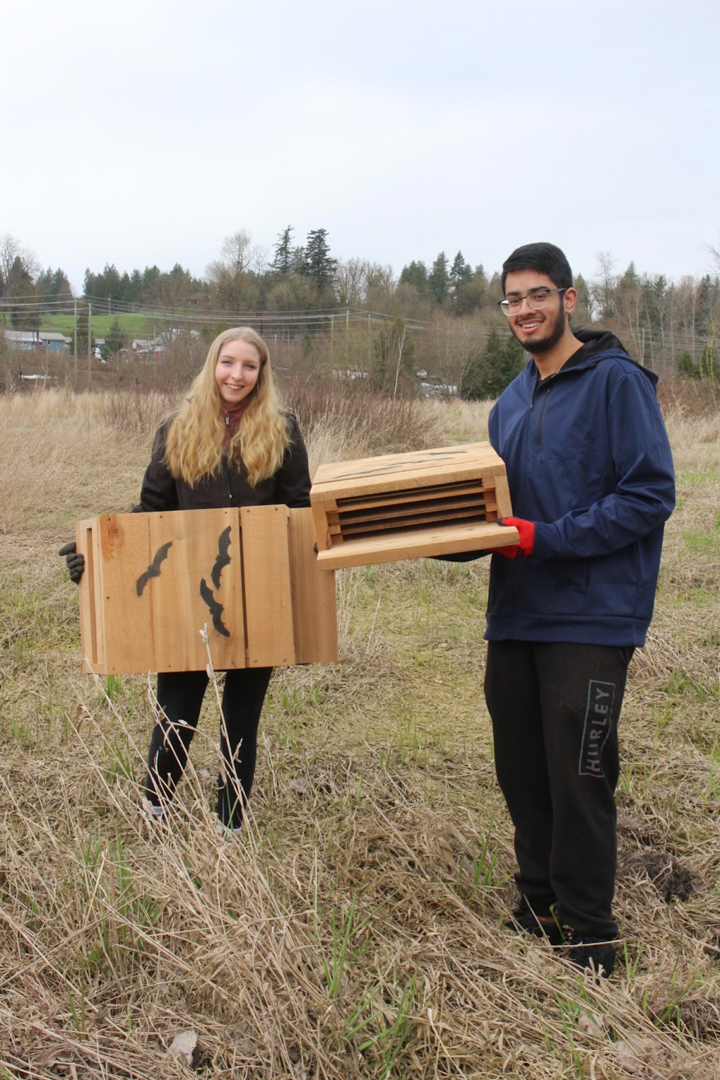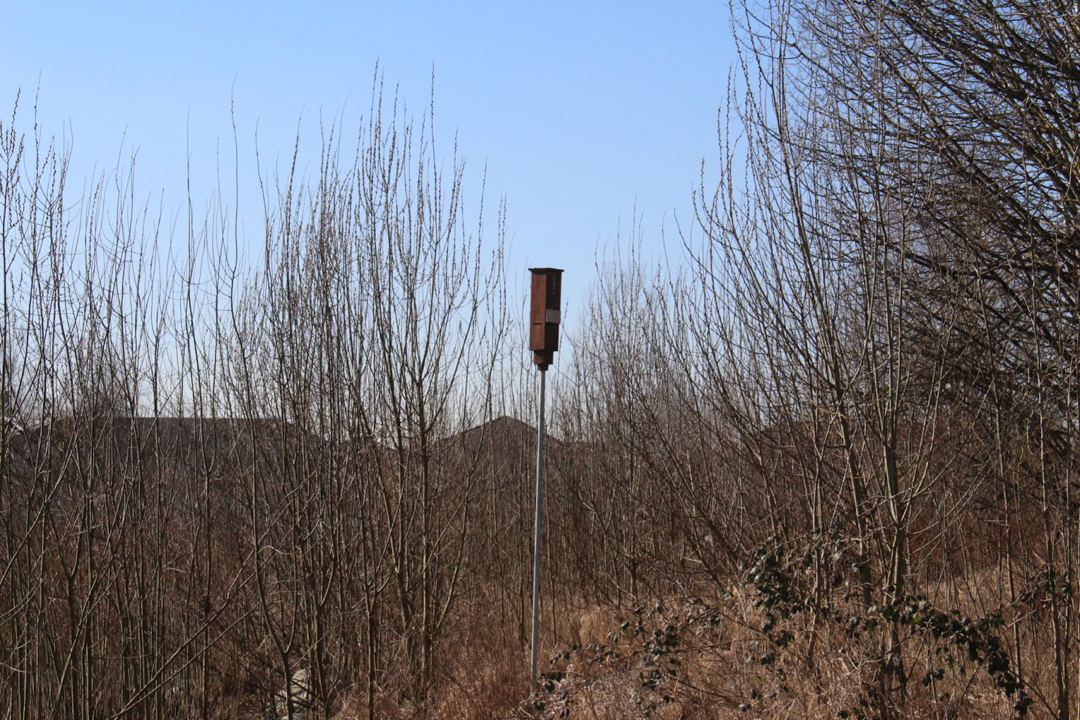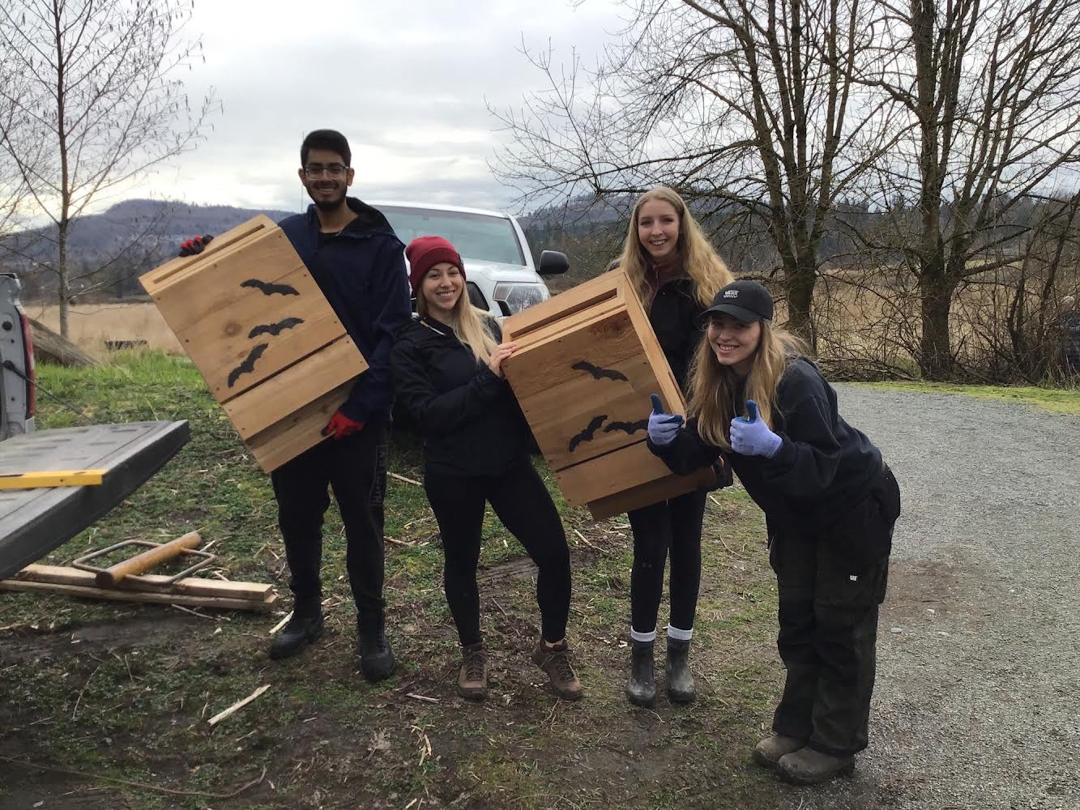
As part of the ENV 410 class, a group of UFV students have started an initiative to make Abbotsford a certified bat-friendly community. So far, only four cities in B.C. have been certified by the B.C. Bat Program, but students Jennifer Heldt and Aysha Mcconkey hope to add Abbotsford to the list within the next year with the Abbotsford Bat Conservation group.
Since 2006, bat populations across the country have suffered from the white nose syndrome that has been destroying bat communities across North America. In 2016, this unsolvable deadly fungal disease was found in Washington state, and biologists across B.C. fear that it will be transported over the border.
B.C. currently hosts 16 different species of bats, including the endangered little brown bat, which is at risk of the white nose syndrome. In an effort to protect these and other species of B.C. bats, the Abbotsford Bat Conservation group reached out to the Abbotsford-Mission Nature Club (AMNC), as well as bat biologists John Saremba and Aimee Mitchell. They were able to help set up and maintain bat-housing boxes in Willband Creek Park, a known bat roosting place.
So far, the Abbotsford Bat Conservation group has done research to understand why the bat populations in B.C. are suffering, and have discovered that they are threatened by overpopulation and human expansion that is destroying their natural habitats, along with the white nose syndrome. According to Heldt, bats that roost in urban areas, like the little brown bat, are often seen as pests and forced out of their habitats by humans. Without any other place to go, these bats end up in residential areas and are threatened by human contact.

To help solve this issue, the AMNC and the ENV 410 group set up boxes for nurseries and a larger box that can house up to 300 bats in Willband Creek Park. In the next year, the Abbotsford Bat Conservation group will help offer nature walks for counting bat populations and collecting bat poop, or guano, for the B.C. Bat Organization to study. By drying out and studying gunao, bat biologists can determine what species of bats are in the boxes, and assess their health.
The Abbotsford Bat Conservation group will also work on the three aspects of certification required by the Community Bat Program of B.C. First, they focus on protecting and creating bat habitats by finding out where bats are currently roosting and building bat boxes to safely house them. Next, they must focus on teaching the public about bats and their importance to the environment. By reaching out to The Abbotsford News and The Cascade, Heldt is working on this aspect of certification. Finally, bat certification relies on educational promotion. To do this, the Abbotsford Bat Conservation group is currently in contact with Mount Lehman Elementary to teach their students about the bats roosting near their school.
Students interested in helping certify Abbotsford as a bat-friendly community, or who have seen bats in the area, can contact Jennfier Heldt at Jennifer.Heldt@student.ufv.ca for more information on how to get directly involved with the project. In the future, the Abbotsford Bat Conservation group will be hosting four bat counts at Mount Lehman Elementary, starting on May 5, and participating in Bat Week, which runs October 21 to 31, 2022.

Allison is starting her BA in English with a minor in Criminology to become a publishing contract lawyer. In her spare time, she watches way too many true crime shows and reads a lot of Y.A. fiction, while slugging along on various articles.

